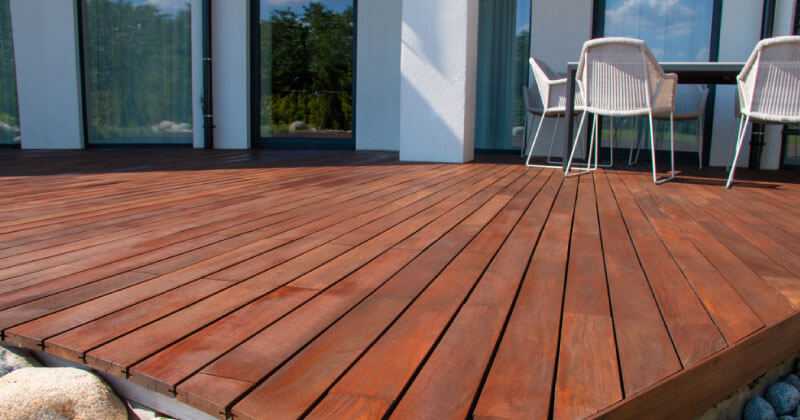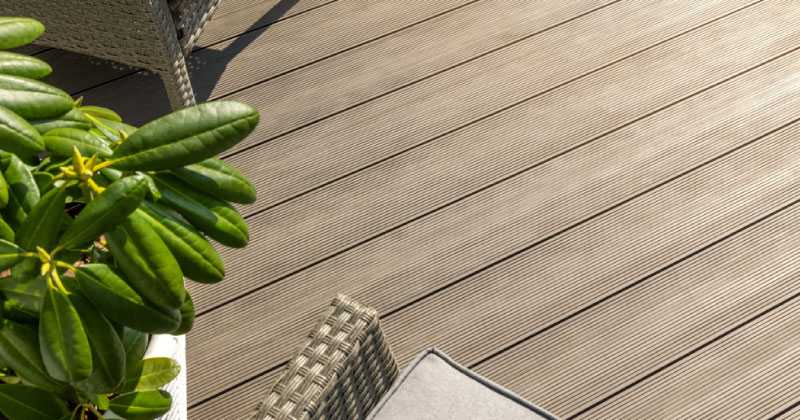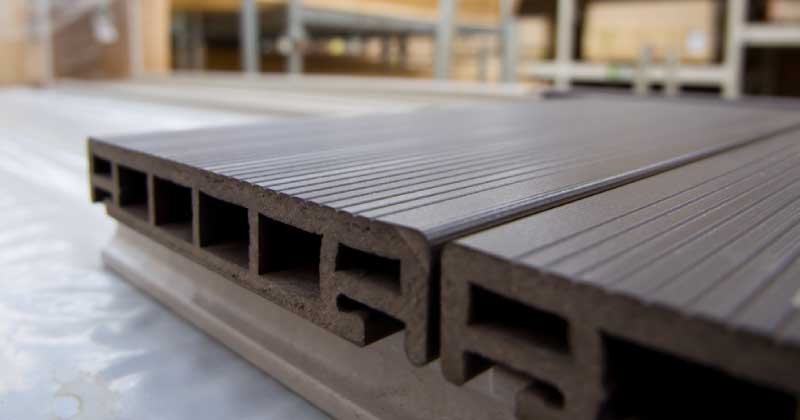If you want to build decking, you have three decking options: wood, composite decking, and vinyl. Homeowners construct decking in their homes using one of three decking materials, with varying outcomes and feedback. While owners of wood decking prefer it because of its classic appearance, they often grumble about maintenance.
Owners of composite decking promote it because it is attractive and simple to maintain. PVC decking is said to be similar to composite decking by its owners. If you’re new to decking and want to buy it yourself, you could be perplexed.
Which is the best decking material

Wood Decking
This is the most traditional decking material. Before composite and PVC were introduced, homeowners used wood to build decks and their homes. Natural wood is utilized to construct wooden decking. To extract moisture from the wood, it will be treated with chemicals under pressure. Chemically treating wood makes it firmer and lasts longer.
Timber decking is unique in that it is the least expensive of the three decking options. This means that if you’re on a budget and want to create decking, wood is your best bet. However, unlike wood plastic composite and PVC, hardwood decking is not as sturdy and long-lasting. Wooden decking is prone to decay, mildew, warping, splintering, and the sun’s UV radiation.
All of this should be taken into account if you wish to construct timber decking. Wood decking swells when moisture comes into contact with its surface due to its low weather resistance. When trädäck is heated, it expands and cracks or splinters. Splintered wood decking will result in the breaking of the boards.
Termites are wood-eating insects. Because natural lumber is food for them, they will bore or chew through it. Mold and mildew, in addition to termites, may cause damage to wood decking. The surface of your plastic wood decking will be destroyed by mold. When this happens, you’ll need to scrub the area and maybe stain or paint the surface to clear it up.
Although wood is inexpensive to purchase, when you consider the expense of upkeep and the short lifespan, it is not the best option. This is because, in the long term, hardwood decking will cost more than composite decking.

Composite Decking
Decking manufacturers produced a new decking type as a result of homeowners’ discontent with timber decking. Wood-plastic composite decking is the name of this innovative decking material. Composite decking is another term for wood plastic composite decking. This type of decking is classified as a composite. It’s a combination of two materials with opposing qualities. Non-composite materials are weaker and less long-lasting than komposittrall. Wood-plastic decking is made from two materials: wood flour and PVC. After mixing with a bonding agent, they are heated to make composite boards. Composite boards are more durable than wood as a decking material. Like lumber, they are resistant to decay, swelling, splintering, cracking, and warping.
Insects won’t eat the composite, either. The composite’s surface, or top, is better built to withstand moisture absorption. Your composite will not absorb moisture if water or rainfall falls on it. As a result, swelling and rotting will be avoided. True, composite costs more than timber; nevertheless, when you consider how much time you’ll spend caring for timber, you’ll see that composite is a more cost-effective alternative than lumber.
Although composite is not scratch-proof, it is scratch-resistant since it does not scratch as quickly as wood does. The surface of your composite will remain shiny if you do not drag anything onto it. Cleaning your composite is simple because all you need is a cloth, a brush, and some water.

PVC Decking
PVC decking is the third decking material we’re comparing. Because it is constructed of plastic, this decking differs from plastic wood decking and wood. Plastic decking, like composite decking, is simple to clean. Plastic decking, on the other hand, is not a composite material.
PVC is less scratch-resistant than composite, but it outperforms wood. It is more resistant to decay, swelling, warping, and breaking than wood. When it comes to decking for your outdoor project, PVC or composite are the preferred options because they are more cost-effective.
Conclusion
Comparing the characteristics of wood, vinyl, and composite decking is the best approach to determine which is superior. PVC and wood-plastic composite are better options than wood, which is the least expensive of the three.


